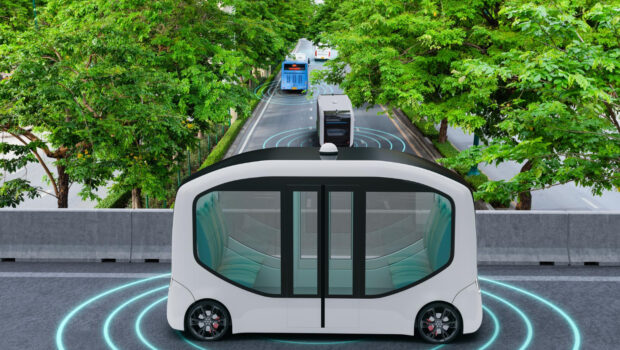The Ethics of Autonomous Vehicles: Balancing Safety, Efficiency, and Personal Responsibility
In recent years, the rapid advancement of autonomous vehicles has captured society’s imagination. However, as this technology becomes more prevalent, ethical questions arise regarding the balance between safety, efficiency, and personal responsibility. While autonomous vehicles offer the potential to revolutionize transportation and save countless lives, they also present complex moral dilemmas that must be addressed. In this blog, we will explore the ethical considerations surrounding autonomous vehicles and the challenges in navigating the intricate web of safety, efficiency, and personal accountability.
Safety First, Always
When it comes to autonomous vehicles, safety is the paramount concern. The promise of self-driving cars lies in their potential to eliminate human error, which is responsible for most road accidents. However, problems arise when it comes to programming ethical decision-making algorithms. Should an autonomous vehicle prioritize the safety of its occupants over the safety of pedestrians or vice versa? This moral problem highlights the need for a universal standard to protect all lives involved. Striking the right balance will require combining technical solutions, industry-wide regulations, and open public discourse to address these dilemmas.
Efficiency and the Greater Good
Another crucial aspect of autonomous vehicles is their potential to improve efficiency in transportation systems. Self-driving cars can revolutionize urban mobility by optimizing traffic flow, reducing congestion, and increasing fuel efficiency. However, these advancements must be achieved while considering fairness and equity. How can autonomous vehicles prioritize efficiency without exacerbating social inequalities or discriminating against specific demographics? Ensuring that the benefits of autonomous cars are distributed fairly and do not exacerbate existing disparities is a vital ethical challenge that requires careful consideration and proactive measures.
Personal Responsibility in an Automated World
As autonomy becomes more pervasive, questions arise about the role of personal responsibility. Should individuals be held accountable for accidents involving autonomous vehicles, or should the responsibility lie solely with the technology and its developers? Striking a balance between individual accountability and acknowledging the limitations of technology is essential. While manufacturers should be responsible for the safety and reliability of their autonomous systems, users must also be educated and aware of their role in ensuring safe operation. This shared responsibility requires a collaborative effort between regulators, manufacturers, and individuals to establish clear guidelines, effective training programs, and continuous oversight.
Conclusion
The ethics of autonomous vehicles present a complex and multifaceted challenge. Balancing safety, efficiency, and personal responsibility requires careful consideration, open dialogue, and collaboration among various stakeholders. It is crucial to establish comprehensive regulations and industry standards that prioritize the safety of all road users while ensuring fairness and equity in the deployment and use of autonomous vehicles. By addressing these ethical concerns head-on, we can harness the potential of this transformative technology while upholding the values that drive a just and responsible society.
FAQs
Are autonomous vehicles safer than human drivers?
Autonomous vehicles have the potential to be safer than human drivers since they are not prone to human errors, distractions, fatigue, or impaired judgment. However, achieving complete safety is a complex challenge. While self-driving technology has the potential to significantly reduce accidents, there are still ethical considerations regarding how autonomous vehicles should prioritize safety in unavoidable accident scenarios.
How do autonomous vehicles make ethical decisions?
Ethical decision-making in autonomous vehicles involves complex algorithms and programming. Manufacturers and developers program self-driving cars to follow certain guidelines and priorities. These guidelines may include minimizing harm to all parties involved, following traffic laws, and prioritizing the safety of vehicle occupants or other road users. However, striking a balance between these priorities remains an ongoing ethical debate.
Who is responsible in the event of an accident involving an autonomous vehicle?
Determining liability in accidents involving autonomous vehicles is a complex issue. Responsibility can lie with various parties, including the vehicle manufacturer, software developer, or even the individual using the vehicle. Legislators and policymakers are working to establish legal frameworks that assign responsibility and ensure accountability in such situations.
What measures are in place to protect privacy and data security in autonomous vehicles?
To protect privacy and data security, strict regulations are necessary. Measures such as strong encryption, data anonymization, secure storage protocols, and transparent data usage policies should be implemented. It is important for autonomous vehicle manufacturers and developers to prioritize data protection and inform users about how their data is collected, used, and shared.
How will autonomous vehicles impact employment?
The rise of autonomous vehicles has the potential to disrupt industries that rely on human drivers, such as taxi services and trucking. While self-driving technology offers benefits such as increased efficiency and reduced costs, it also raises concerns about job loss and economic impact. It is important for stakeholders to collaborate and develop strategies that provide job retraining programs and create new employment opportunities to ensure a just and equitable transition.
How can the public participate in discussions about the ethics of autonomous vehicles?
Public engagement is crucial in shaping the development and deployment of autonomous vehicles. Individuals can participate in discussions through public forums, consultations, and surveys conducted by policymakers and industry experts. Additionally, staying informed about the technology, its implications, and engaging in public awareness campaigns can empower individuals to make informed decisions and contribute to ethical discussions.
















